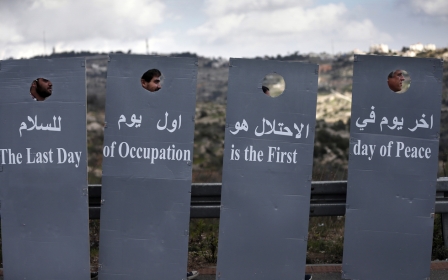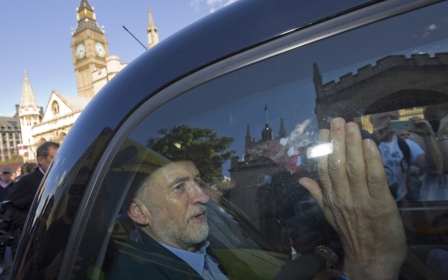Note to Jonathan Freedland: Israel's discriminatory democracy is not at all like Britain

The entangled debates and controversies on anti-Semitism in Britain and on Israel’s treatment of Palestinian citizens of Israel and stateless subjects in the 1967 occupied territories are exceptionally emotive, heated and visible.
Precisely for this reason it becomes all the more important for leading liberal participants in the debate to try and get the basic facts right. Commenting on the row over former London mayor Ken Livingstone and on the Labour Party’s either real or imagined anti-Semitism, the Guardian’s senior editor Jonathan Freedland suggested the following:
“Israel could define itself as a Jewish country and still be inclusive towards its non-Jewish minorities, just as Britain is still shaped as a Christian country – with a Christian calendar, an established church and with the cross at the centre of its national flag – and yet has managed to become, after centuries of struggle, an equal home for non-Christians too.”
But Freedland may have compared apples and oranges.
An Israeli Jew – or non-Jew for that matter – can become a citizen in a culturally Christian Britain. A British non-Jew, on the other hand, cannot become an Israeli citizen in the same legal-civic manner. Be a person an Israeli Jew or Muslim, he or she does not need to convert to Christianity – or join the Anglican Church – in order to acquire British citizenship.
In contrast, if a British Christian or Muslim wishes to become Israeli then they cannot do so except by firstly undergoing a religious orthodox conversion to Judaism. (A non-Orthodox religious conversion – authorised, say, by the British or American Jewish reform movement – will not suffice).
Contrary to what Freedland suggests, therefore, Israel is certainly not Israeli in the same way that Britain is British. Israel is a religiously defined exclusionary state that – when compared to its Arab neighbours – does possess some good number of democratic features so far as its pre-1967 territory is concerned. Britain, on the other hand, is essentially an irreligious, democratic constitutional monarchy.
As far as non-Jewish Palestinians are concerned, these differences between Britain and the self-defined “Jewish and democratic” Israel are lightyears away from being semantic and must thus never be downplayed nonchalantly as Freedland seems to be doing consciously or unconsciously.
Britain is equally democratic for its Christian, Muslim and Jewish citizens. Israel, on the other hand, is democratic for its Jewish citizens and Jewish for its Arab citizens. There are in Israel dozens of profoundly discriminatory laws against non-Jews generally and Palestinian Arab citizens in particular. (It is worth browsing the comprehensive database of Adala, The Legal Center for Arab Minority Rights in Israel). Had equivalent laws been introduced in Britain – or the US for that matter – in relation to their minority non-Christian citizens, the two countries could no longer merit the definition "democracy".
Moreover, Freedland should know well that a British or an American Jew who never set foot in Israel can become Israeli citizens instantly. But their fellow British or American non-Jews who marry an Israeli citizen who is a non-Jewish Palestinian cannot earn Israeli citizenship.
By law, non-Jews in Israel cannot even purchase land – which is obviously not the case for Jews or Muslims in the indeed culturally Christian Britain. Non-Israeli Jews enjoy extra-territorially more rights than Israeli citizens who happen to religiously be non-Jews.
Such thorny corners and profound differences between Britain and Israel should not be brushed aside in the heat of domestic debates in Britain between supporters and opponents of the Labour party. Doing so not only does disservice to the quality of these debates but even greater disservice to Israeli Jews and non-Jews who struggle hard to deepen and expand Israel’s diminished democracy within its pre-1967 borders and its complete military non-democracy in the occupied Palestinian territories.
- Moshe Behar is senior lecturer in Middle Eastern Studies at the University of Manchester. His work can be explored on Academia.edu.
The views expressed in this article belong to the author and do not necessarily reflect the editorial policy of Middle East Eye.
Photo: A Picture taken on 27 April, 2016 shows the symbols of the three monotheistic religions, Christianity, Judaism and Islam, on the front of an Arab Jewish centre in the northern port city of Haifa (AFP).
Stay informed with MEE's newsletters
Sign up to get the latest alerts, insights and analysis, starting with Turkey Unpacked
Middle East Eye delivers independent and unrivalled coverage and analysis of the Middle East, North Africa and beyond. To learn more about republishing this content and the associated fees, please fill out this form. More about MEE can be found here.





